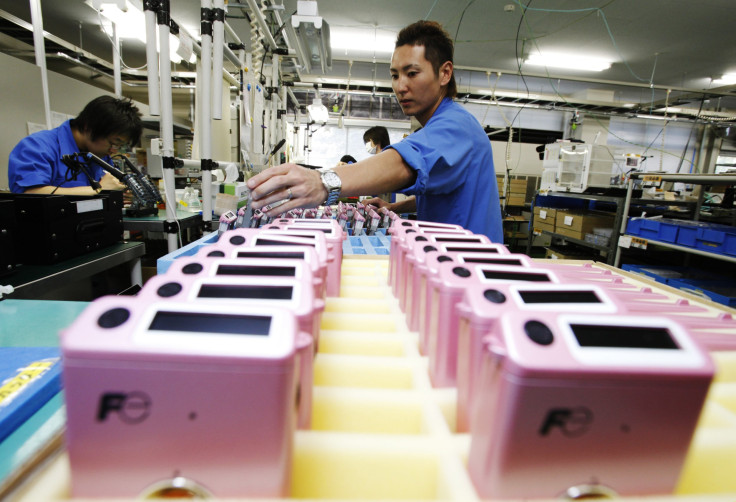Asian Factory Growth Lackluster As China Slowdown Hurts Demand And Prices Fall

Factories across major Asian countries slowed down in October, hurt by falling demand and lower raw material prices, according to data released Monday by Nikkei and Markit. The data also indicated that Asian businesses continued to bear the brunt of falling commodity prices.
The report follows official data released by China Sunday, which showed the country's manufacturing sector continued to contract in October even as the nation's services sector slowed to its lowest level in seven years. The Nikkei-Markit data showed manufacturing sectors across the region, with the exception of Japan and Vietnam, suffered in October.
Factories in India, Indonesia, Malaysia, Taiwan and South Korea saw fewer orders in October as operating conditions worsened, according to the Nikkei Manufacturing Purchasing Managers' Index (PMI) report compiled by Markit. Nikkei’s manufacturing PMI for Indonesia, Malaysia, Taiwan and South Korea stayed below 50 in October. A figure below 50 indicates contraction. The data also indicated that businesses were hurt by falling commodity prices.
A drop in raw material costs can affect the sales of a company due to demands by buyers to push down selling prices. As a result, companies tend to be wary of spending on increasing capacity and hiring new employees.
In South Korea, many firms blamed the weak data on challenging international economic conditions, while some pointed to the drop in demand from China, according to the report.
The downturn led some economists to expect further monetary easing by Asian policy makers. "Taiwan’s central bank may consider cutting its benchmark interest rate again to help kick-start the economy,” Annabel Fiddes, an economist at Markit, said in a statement.
India’s manufacturing sector continued to expand in October albeit at its slowest in 22 months, due to an uncertain regulatory environment and lower-than-expected demand, even as Prime Minister Narendra Modi looks to make manufacturing the country's economic engine through his ambitious "Make in India" program.
Meanwhile Japan and Vietnam reported a growth in factory activity for October. Japan’s PMI hit a one-year high helped by a sharp rise in demand for Japanese products worldwide. And last week, the country's central bank held its stimulus program steady but indicated that it could ease monetary policy further next year.
Vietnam’s businesses also expanded marginally in October. While the data seemed to point to a stabilization in the country's economy, Markit's Andrew Harker said, in a statement, that "the strong growth seen earlier in the year now seems a long way off."
Global manufacturing activity in September expanded at its slowest pace in two years, mainly due to weakness in Asia, with the JPMorgan-Markit global manufacturing PMI falling to 50.6 from 50.7 in August, the report added.
“Looking ahead, we expect a modest improvement in global demand to help support Asian manufacturing in the coming quarters, but the pace of recovery is likely to be gradual,” Krystal Tan, Asia economist at Capital Economics, told Business Insider.
© Copyright IBTimes 2025. All rights reserved.





















